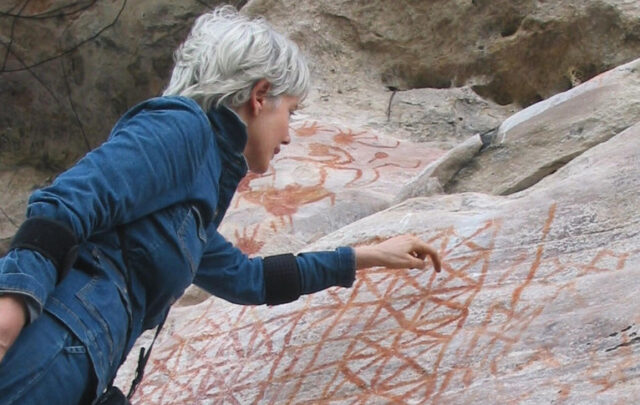Crash Course: Preparing for Peak Oil
By Zachary Nowak
119 pp. Green Door Publishing – June 2008. $20.00.
We need to be prepared for the worst when it comes to peak oil, insists Zachary Nowak.
Just as homeowners pay hefty insurance premiums in exchange for a promise of help in the unlikely event of a fire, so, too, should peak oil believers be developing their own sort of insurance policy against the worst imaginable consequences of peak oil.
That is the analogy with which Nowak opens his new ebook Crash Course: Preparing for Peak Oil (available from www.preparingforpeakoil.com); and his logic is unassailable. Nowak wrote Crash Course because he was frustrated with the prevalence of business-as-usual-lite solutions to the peak oil predicament, such as switching to fluorescent bulbs or driving Prius hybrids. He knew that these measures wouldn’t constitute solutions at all if peak oil wound up taking the form of an abrupt crash—and he was disappointed to see them being bandied about not only by the general public, but by much of the peak oil community as well.
So, in August 2006, he posted an essay on Energy Bulletin titled “Preparing for a Crash: Nuts and Bolts.” Nowak knew implicitly that his self-described “doomer” disposition and insistence on worst-case-scenario planning would be unpopular with a large segment of the peak oil community. And indeed, true to his suspicion, the essay stoked fierce debate and criticism across the net. One particularly huffy critic derided Nowak’s vision as both an unrealistic survivalist fantasy and an unethical response to the crisis, like running out of a burning building at the first signs of smoke instead of staying behind to help see others to safety.
Whatever you may think of Nowak’s position, you have to at least give him credit for shaking things up and getting people to talking.
Nowak’s new book is an amplification of that initial essay. Like the essay, it does a superb job of covering every aspect of peak oil preparation, from alternative building to food production and preserving. However, the book greatly expands the discussion of the earlier piece and supplements it with plenty of nicely done illustrative figures. (Nowak, who has also written a mystery novel set in the city of Perugia, Italy, and a guidebook to the same city, used his previous publishing connections to enlist the help of two graphic artists.) Also accompanying the text is an extensive annotated bibliography intended to guide readers in further research.
Crash Course is emphatically not a course in specific self-sufficiency skills. How could it be, given the vast number of subjects on which it touches? Instead, it serves as a starting point, a “study-at-a-glance workshop,” to use Nowak’s term.
Its first half is theoretical, delving into how the peak oil crisis came about, the metaphors we often use to make sense of it and the various peak oil scenarios that have been proposed (including a few that have almost become tropes by now, like “Powerdown U.S.A.,” “The Great Energy Depression” and “The Crash”). This survey is truly one of the most lucid and scholarly I’ve seen, alluding to thinkers as far-ranging as Karl Marx, Ludwig Wittgenstein and Alfred North Whitehead.
The discussion of peak oil metaphors is cerebral and illuminating. Nowak is particularly fond of the Car-With-No-Brakes Metaphor and the Lifeboat Metaphor. But he dismisses as overly simplistic the metaphor that likens the human population explosion to the action of yeast in a bottle, ultimately dying in their own waste on their way to becoming wine. (This same metaphor was used to wonderfully sardonic effect in the late Kurt Vonnegut’s novel Breakfast of Champions.)
Nowak sees an inherent danger in the use of historical examples as a model for how peak oil might play out. For one thing, all previous societal collapses have been local in nature, whereas peak oil will be a global crisis. And he finds several “axioms” of peak oil thinking—such as blind faith in human ingenuity or the power of rational debate to convince people of peak oil’s gravity—to be seriously flawed.
Nowak makes it clear that he believes The Great Energy Depression to be the most likely peak oil scenario, but that he’s taking pains to prepare for a Crash, just in case the worst-case scenario does become reality after all. To this end, he complements the initial, theoretical section of Crash Course with a practical section born of a “…personal attempt to figure out what I need to know to survive hard times, [and] also what tools I need and where I can get them.”
Subjects covered in the practical section include the traits of an ideal refuge in the country; the use of small-scale alternative energy sources; the basics of animal domestication; the vital role of perennials and wild plants in supplying a diverse, hardy vegetable crop; methods of food preservation that don’t involve freezing; and sanitation and low-tech medicine. Nowak supplements the text with a terrifically comprehensive annotated bibliography, and he backs up his suggestions with examples from his own experience at gardening, alternative building and biodiesel production.
The overarching dictum of this section is that a refuge in the countryside offers the best chance of survival. This is a fair assumption, but also a favorite beef of his detractors. Nowak also holds that these refuges will be safe from marauders, so long as they are well-hidden. This, of course, is exactly the opposite of what peak oil heavyweight John Michael Greer believes. Greer says that such rural enclaves will be very attractive targets for brigands, and should expect to be raided. Both scenarios seem plausible. Greer marshals history in support of his claim, while Nowak uses utterly cogent logic. Nowak reasons that once gasoline is either totally unavailable or selling on the black market for outrageous sums, marauders will be unlikely go to the expense and risk of making aimless forays into the countryside, unless they’ve already staked out a potential booty. Instead, they’ll be far more likely to keep taking their chances in the cities—decaying, perhaps, but still far from utter exhaustion.
But enough hairsplitting over the dimensions of an unknowable future, and on to the nub of the matter: Does Crash Course present a truly viable plan for surviving the decline of oil? The answer is a resounding yes. This book is nothing less than the original, masterful, committed work of a fevered peak oil thinker and doer—even if it is a rather slim volume, at 119 pages. Its suggested reading lists choose from among only the best sources; and the plain, irrefutable logic of its insurance policy metaphor would do Sir Arthur Conan Doyle proud. Nor is the book’s appeal limited to peak oil believers. Avid gardeners, permaculture advocates and back-to-the-landers can benefit from it in equal measure.
Frank Kaminski is an ardent peak oiler who participates regularly in Seattle Peak Oil Awareness. He can be reached at frank.kaminski AT gmail.com.






